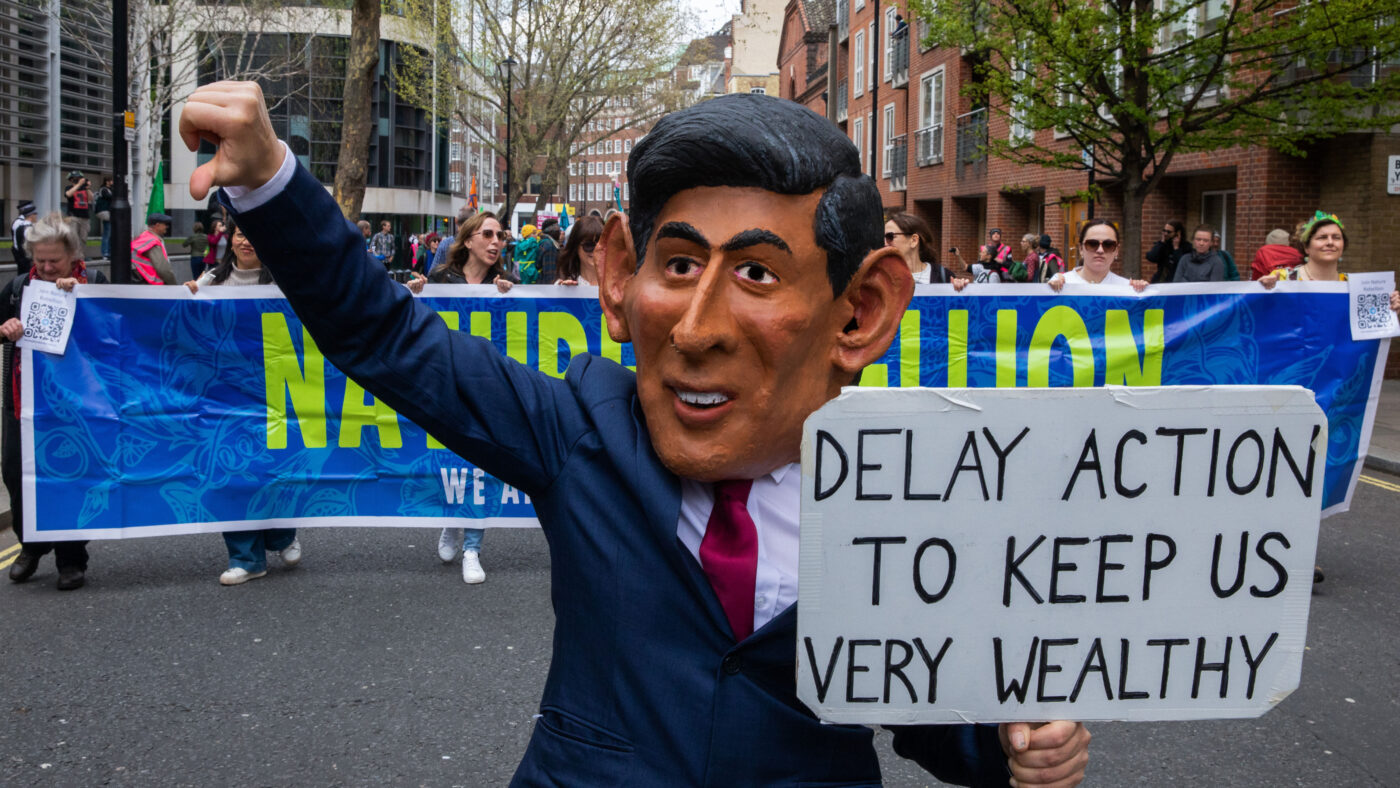When Greenpeace climbed on the Prime Minister’s roof this week, the natural response was to rage about the group’s intrusive, not to mention illegal, tactics. Why, many asked, would an apparently serious organisation think it’s OK to invade a politician’s family property?
It’s a perfectly reasonable question: whatever the excuses about the Sunak family being away at the time, there is something deeply creepy about infringing politicians’ personal space in this way. More concretely, as Ian Acheson rightly noted on our pages, the ease of the security breach will surely have piqued the interest of far nastier groups than Greenpeace.
And coverage that focuses primarily on the stunt itself is probably just what Greenpeace wants. Because, as with the likes of Just Stop Oil and Extinction Rebellion, once you interrogate their claims and demands, you start to wonder what it is they actually hope to achieve.
In this case, Greenpeace justified draping the Sunaks’ home in ‘oil black fabric’ by saying that issuing new North Sea oil and gas licences is ‘a big disaster’.
It’s a good soundbite, but does it make much sense? Does anyone seriously think that a few new projects in the North Sea will make any difference on a global scale, given the tiny sliver of the world market that the UK accounts for? Ultimately, shutting off what little domestic production we have just means importing more oil and gas, and reaping less tax from our own producers.
Just Stop Oil’s demands are essentially the same, but all we ever hear about is how much their latest roadblock has annoyed or inconvenienced members of the public. Meanwhile, Extinction Rebellion, the enfant terrible of modern greenery, want to reach net zero emission by 2025 – an effort steered by a Citizens’ Assembly and informed by the ‘common sense of ordinary people’.
These groups also like to argue that if it weren’t for a few ‘climate criminals’ things would be different. Greenpeace’s co-executive director, Areeba Hamid, claims that it is only ‘a minority of people whose actions are causing damage’. Far easier to pick a few bogeymen than face the unpalatable truth that, as Helen Thompson puts it ‘fossil fuel energy has been the material basis of modern civilisation’. Changing that is going to be an enormously expensive, disruptive endeavour.
For although these organisations all claim to be the ones taking the threat of climate change seriously, both their tactics and their claims betray a total lack of seriousness about the challenges ahead: namely, how do you decarbonise modern, industrial economies without inflicting huge costs on people? What will it take for the UK’s grid to rely primarily on renewable energy? Vague injunctions to ‘take action!’ and glib quips that ‘the cost of inaction is higher’ don’t answer those kinds of questions.
Then again, the Government itself also seems to be wallowing in distraction. As William Atkinson notes, the Prime Minister’s approach is to ‘show a little green-bashing leg’ by announcing a review into low-traffic neighbourhoods and raging against the expansion of Ulez, all while ploughing on with the central Net Zero policy.
I’m not suggesting a counsel of despair when it comes to a lower-carbon economy. There are lots of exciting green technologies both emerging and improving, not least when it comes to electric vehicles. But politicians and campaigners alike should acknowledge that a transition on the scale envisaged is going to involve big upheaval, and the public should be given a clearer sense of the direction of travel. If not, and the costs start to pile up, people really are going to hit the roof.
Click here to subscribe to our daily briefing – the best pieces from CapX and across the web.
CapX depends on the generosity of its readers. If you value what we do, please consider making a donation.


